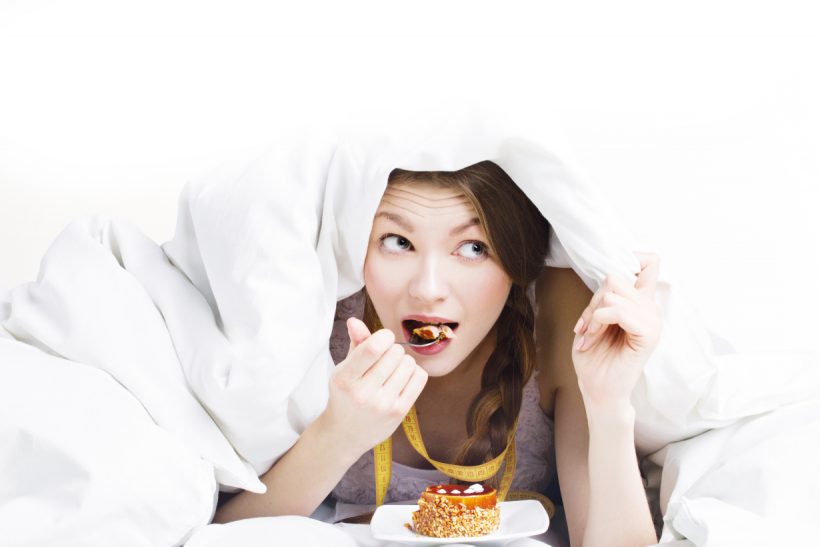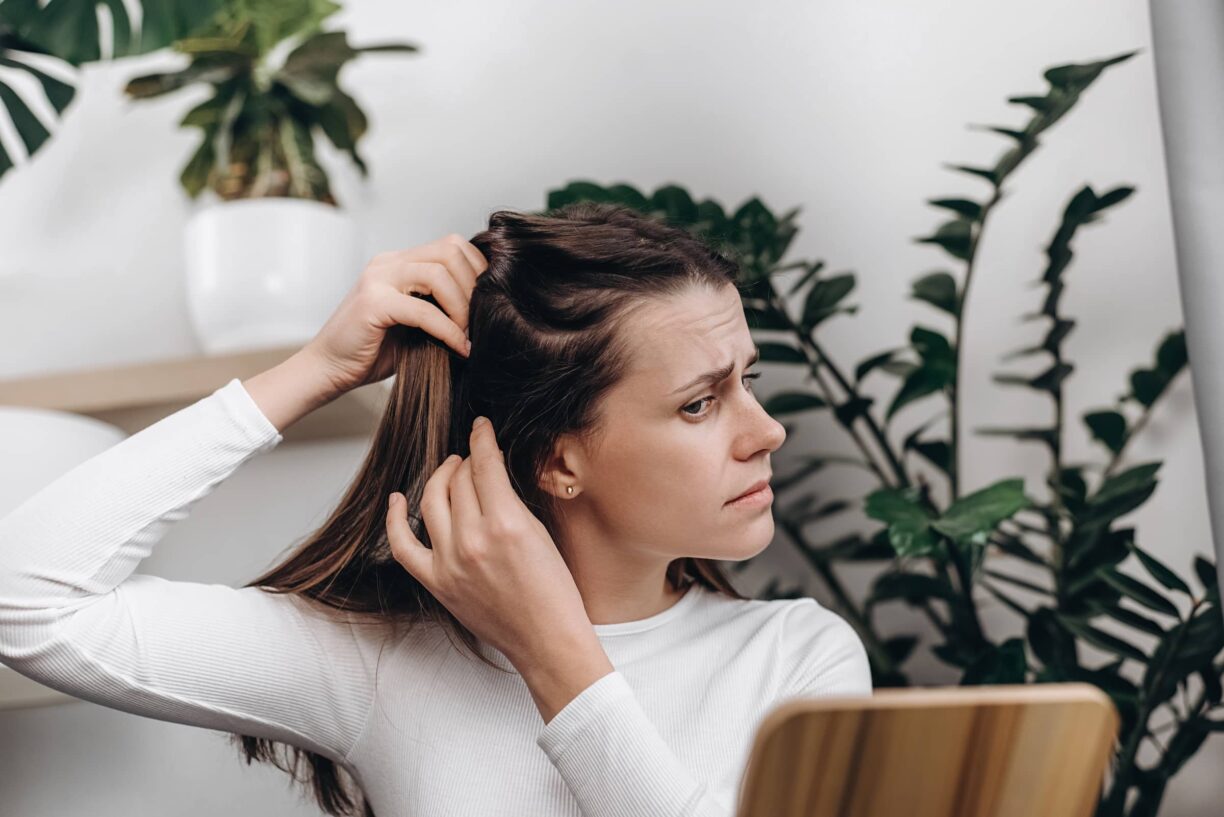Research reveals that more than a quarter of women admit to eating food in secret. This behaviour is driven by feelings of embarrassment about the type or quantity of food they consume.
The study, conducted by weight loss firm LighterLife, surveyed 2,000 women and uncovered striking patterns in their eating habits.
The Hidden Eating Epidemic
The poll found that six in ten women often hide to eat foods they feel they shouldn’t be consuming.
A notable 23 per cent regularly conceal food wrappers and bury the evidence in the trash. The secretive nature of this behaviour extends to 16 per cent of women who admit to sneaking into another room to indulge, with the bedroom being the preferred hideaway.
Surprisingly, 10 per cent of women are so intent on keeping their eating habits under wraps that they resort to eating in the bathroom.
Privacy, it seems, is the key, with 28 per cent stating that any secluded spot will suffice.
The Psychological Burden
A significant portion of respondents, 40 per cent, recognize their secret eating as problematic but feel powerless to stop, even though they acknowledge being overweight.
One in five women have gone to the extent of hiding food in the trunk of their car, and one in twenty keep their stash in a locked drawer to prevent others from accessing it.
Celebrity Ambassador for LighterLife, Denise Welch, comments on the findings: “This absolutely confirms that – for many – eating has nothing to do with food – it’s all about what’s going on in the mind.
Gorging on the food you’re not supposed to be eating, whether that’s because you’re dieting, or you don’t want to set a bad example to your children does give you a buzz and acts as an instant pick-me-up. But it’s short-lived, and often followed by guilt.”
Social Dynamics and Secret Eating
The survey highlights the social aspects of secret eating. When women have the house to themselves, 35 per cent see it as an opportunity to eat without judgment.
Women mainly hide their overeating from husbands and boyfriends (55 per cent), but 31 per cent also conceal their habits from work colleagues.
Interestingly, 23 per cent of women admit to making excuses to leave the house, such as getting petrol or milk, just to indulge in snacks secretly.
A notable behaviour is eating food immediately after purchasing it, with one in ten women confessing to consuming treats before even reaching their car.
Some even use restroom breaks at work to sneak in a quick snack. Additionally, 16 per cent of women finish their children’s leftovers when no one is watching.
The Financial Cost of Secret Eating
The financial implications of secret eating are also significant. The survey found that the average woman spends approximately £1.16 daily on hidden treats, amounting to £423.40 annually.
Despite the health consequences, one in ten women strive to maintain a facade of healthy eating while secretly indulging in junk food.
They even stock up on sweet treats at the office, stashing them away for later consumption.
Impact on Nutrition and Health
The study reveals that 48 per cent of women often replace their main meals with high-calorie snacks, with lunch being the most commonly skipped meal.
Over a quarter of respondents believe they overeat daily, with crisps being the most popular choice, followed by biscuits, chocolate, cakes, and buns.
Savoury options like cheese, pies, pasties, and scotch eggs also feature prominently.
The primary triggers for reaching for ‘bad’ foods are emotional, with women citing feelings of misery, sadness, or stress as their main reasons.
Addressing the Issue
Denise Welch for LighterLife adds: “Like alcohol, drugs, or cigarettes, eating can be an addiction and if you know you eat too much food, eating in secret becomes the norm.
Like any addiction, although you know you shouldn’t be doing it and promise yourself to stop, you carry on to have ‘just one more’.”
Dr. Matt Capehorn, LighterLife Medical Director, emphasizes the importance of addressing the underlying emotional issues related to food: “This poll shows the true relationship millions of women have with food – for many, it’s an emotional experience first, and has little or nothing to do with nutrition.
In fact, when many clients arrive with us, they are overweight or obese – but, ironically, they are often malnourished, due to poor food choices.”
Conclusion
Secret eating among women is a complex issue deeply intertwined with emotional and psychological factors.
Understanding and addressing these underlying causes is crucial for developing effective weight loss and nutritional strategies.
As the LighterLife research highlights, the journey to healthier eating habits must begin with acknowledging the problem and seeking appropriate support.





